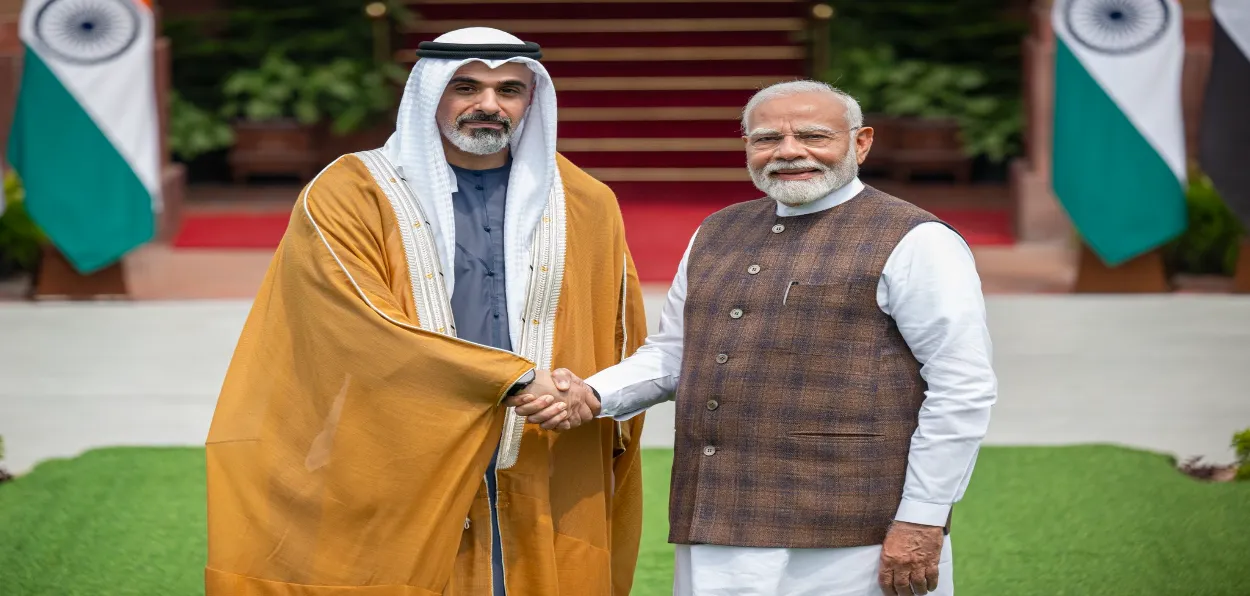
 Shankar Kumar
Shankar Kumar
The Indian Space Research Organisation (ISRO) is preparing to launch two Indonesian satellites this year. While the exact date and time of this launch have yet to be confirmed, this mission will add to ISRO’s ever-expanding record of successfully launching foreign satellites. From May 1999 to January 2025, the ISRO has launched more than 430 foreign satellites.
The ISRO would launch the Indonesian satellites for the third time in a decade. Using its Polar Satellite Launch Vehicle (PSLV), the Indian space organization launched two Indonesian satellites—LAPAN-A2 on September 28, 2015, and LAPAN-A3 on June 22, 2016.
These launches have helped Indonesia, which shares with India an enduring friendship and deep-rooted historical ties, enhance its telecommunications, broadcasting, and remote sensing capabilities. India has also helped Indonesia establish its Telemetry, Tracking, and Command (TTC) system.
However, it's not just Indonesia with which India has a strong space cooperation through ISRO, New Delhi has enhanced its rich and influence among over a dozen Islamic countries like Saudi Arabia, UAE, Bahrain, Kuwait, Oman, Egypt, Nigeria, Algeria, Tunisia, Malaysia, Brunei, Bangladesh, and Maldives.
In September 2024, Brunei signed a Memorandum of Understanding with India on cooperation in the operation of telemetry, tracking, and telecommand stations for satellites and launch vehicles. India has set up a telemetry, tracking, and command station in Brunei and it has been working under the ISRO’s supervision since 2000.
Yet, for the first time, showing its keenness to expand the bandwidth of its cooperation with India in the space sector, Brunei signed an MoU in the area of space research, science, and application, during the first visit of the Indian Prime Minister to this Southeast Asian nation on September 3, 2024.
Over the past decade, India’s space collaborations with Islamic nations have grown significantly. As per the Department of Space, between January 2015 and December 2024, a total of 393 foreign satellites and three Indian customer satellites were launched by the ISRO. Of them, eight satellites were from Muslim-dominated countries such as Indonesia, Malaysia, Kazakhstan, UAE, and Algeria. India’s emergence as a space power in the international arena on account of its ability to achieve its goals in a cost-effective and time-efficient manner, has won the trust of several countries.
Recently, this was illustrated by India’s lunar mission ‘Chandrayaan-3. It landed at the highly challenging South Pole of the Moon in August 2023. The cost of this mission was merely Rs 600 cr (approximately $73 million). The US, Russia, and China had previously succeeded in lunar missions, but with much higher budgets. For instance, Russia’s moon mission, which crashed before landing at the south pole in August 2023, had cost Moscow a staggering Rs 16,000 cr.
This stark contrast highlights the cost-effectiveness and efficiency of India’s Chandrayaan-3 mission, which achieved success at a fraction of the cost.
Yet one of the main factors driving global interest in the Indian space sector is the technological prowess that the ISRO possesses. Over the years, it has consistently demonstrated the delivery of cutting-edge space technology. In 2017, a world record was created when India’s national space agency, with the help of the PSLV-C37 mission, launched 104 satellites into space in a single mission.
Apart from the US, Germany, the Netherlands, and Switzerland, these satellites included one each from the UAE and Kazakhstan. However, following this monumental feat of India, Nigeria, Egypt, and several Gulf countries stitched pacts with India for the development of their space programme.
In August 2020, Nigeria signed an MoU with India for cooperation in areas like remote sensing of the earth, satellite communication and satellite-based navigation, space science and planetary exploration, use of spacecraft, launch vehicles, space systems, and ground systems, practical application of space technology, including geospatial tools and techniques.
A Joint Working Group, consisting of members from India’s Department of Space and the ISRO and Nigeria’s National Space Research and Development Agency (NASRDA) has been set up to work out a plan of actions, including the time frame and the means of implementation. In January 2025, the ISRO conducted specialized training for scientists and engineers of the NASRDA, with a focus on the areas of remote sensing, mapping, and satellite development.
However, Egypt is decidedly much more ambitious about its space programme. It aims to become a regional leader in space technology, potentially even working towards manned space missions in the future. During the state visit of Egyptian President Abdel Fattah El-Sisi in January 2023, Cairo sought India’s expertise in building and launching satellites and space technology applications. The two countries agreed to work in areas such as remote sensing, satellite communication, space science and practical applications of space technology.
Notably, seeds of bilateral cooperation in the space area were sowed between India and Egypt in 2008. Yet a robust shape to it was given during the Egyptian President’s visit to India two years ago.
The larger goal of India’s space diplomacy remains two-fold—first, pushing the envelope on sustainable development: second, giving prominence to not only its growth but also of countries in the Global South.
The collaboration between India and Kuwait in the space sector presents a significant example of this cooperation. Apart from training the officials of the Kuwait Institute of Scientific Research (KISR), India is helping Kuwait to build and launch its remote sensing and communication satellites. India is also helping the Gulf country in furthering research in space science and exploration of outer space.
On the other hand, Oman is strengthening cooperation with India in space science, technology, and applications including remote sensing of the Earth. Since the signing of an MoU with the ISRO in February 2018, Oman’s Ministry of Transport and Communications has left no stone unturned to make its engagement with the Indian space agency effective and result-oriented. It is seeking space-related training from the ISRO; it has asked the Indian space agency to set up a ground station and build and launch satellites.
ALSO READ: Hindu New Year brings out India's cultural and regional diversity
Overall, the spectacular fact about India’s space-related engagements with Muslim countries of the Global South is that they are not based on any transactional goals, rather they are based on New Delhi’s objectives of building goodwill and trust among them.
The author writes on international relations and strategic affairs
